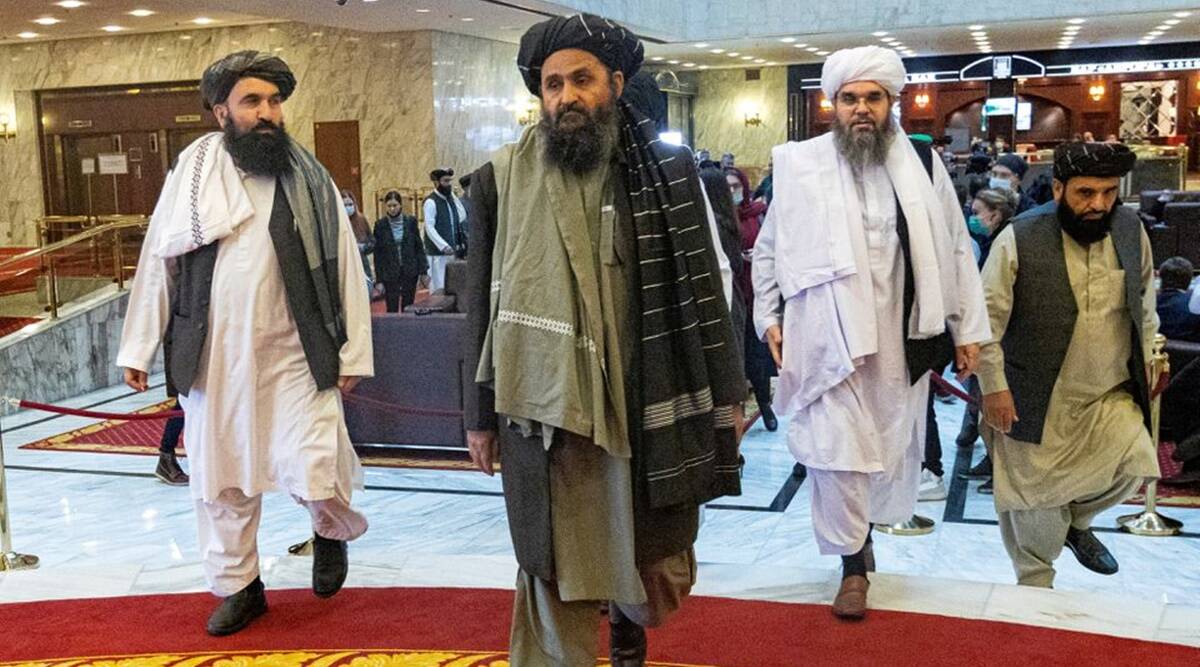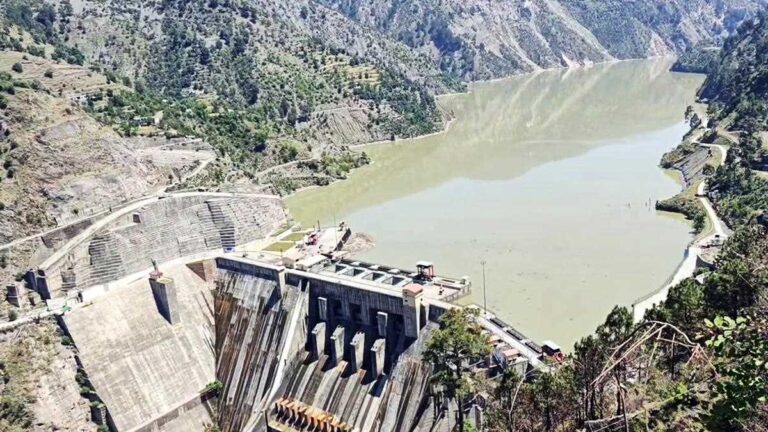
Source: Indian Express
Muhammad Sharreh Qazi
‘Afghanistan is going to be here a long time, and what’s critical is that Afghanistan’s relationship with its neighbors are, to the maximum extent they can be, constructive and operationally useful.‘ John R. Allen.
Commercialization of security is a debated issue but, beyond rhetoric of ethical proportions, it is a favored choice of poison for states that aspire to invest less on personally attending to their security needs. Militant outfits and their offshoots, which later went on to constitute the elements of the Taliban, were themselves created as a similar security provider against a Soviet onslaught towards South Asia which stands witness to how such entities are suited to fulfill only one role: prevent or minimize security lapses for patron states in exchange for financial and other commercial gains. When such entities make government, they enter a domain where almost all slopes are slippery. Having a whole state dedicated to protecting a patron state’s national security is also not a new phenomenon; arrangements like SEATO, CENTO, NATO, and ISAF (to name a few) were all serving such roles and continue to do so as threats emerge. Imagining the Taliban and Afghanistan providing such a service, or assuming such a role is ludicrous by contemporary international standards, only if the world has quit using warlords, dictators, and private military contractors to serve its security needs. South Asia is aspiring to capitalize on its position and assume the role of the world’s economic nerve center, one that is disfigured by security concerns and widespread terrorism. With America calling quits and its withdrawal creating a vacuum, do the Taliban aspire to use this space to improve on their deplorable financial condition? Will the Taliban try to comply with global counterterrorism norms in favor of the interests of other states and avoid critique on what they do at home? Have the Taliban learned their lesson in these two decades and are ready to assume a more pronounced corporate role by disavowing their past? These questions are neither satirical nor ironic but are a serious thought into what lies ahead for Afghanistan if it does not fall victim to another, perhaps a Syria-like meltdown, recovery from which would be impossible, to say the least. These questions are also posed at what the region might have to endure if there is another catastrophe in Afghanistan, one where international assistance might not be so forthcoming.
As the Taliban continue to consolidate power and the world lies in wait to see how Kabul unravels its governance blueprint, the group will find it difficult to accumulate sufficient financial resources to get Afghanistan back on track after what seemed to be an endless war. The American promise to refrain from active engagement in conflict zones does not necessarily mean that it will give Taliban a free pass to fully transition from a de facto takeover to de jure establishment. Legitimacy at Kabul hinges on two important factors: international recognition and financial assistance. The former would either be unavailable altogether or would come with so many strings attached that it would be feasible not to take it. The latter, however, depends on how serious superpower stakeholders are at continuing with their tussle. What does that leave for the Taliban? Will there be a commodity that they are willing to trade regionally in exchange for financial respites? For the Taliban, legitimacy will be important even if they deviate from their early promises to create a more fluid and inclusive environment. Now that the perception war is coming to a close and the referees have all evacuated, the Taliban can stretch their muscles and brace for the impact of the international legal fine-print.
With assets of the Central Bank of Afghanistan frozen and international financial agencies signaling not to provide financial relief to the Taliban, seeking to accumulate momentum in the region is a convenient position at starting some kind of an economic recovery. Avoiding a humanitarian crisis is directly linked to financial relief and proportionality is inverse in this case; there is a possibility that the Taliban might be able to facilitate its neighbors with counterterrorism services. As Kabul consolidates its power, so do terrorist agencies operating in and around Afghanistan. The Islamic State(IS), East Turkestan Islamic Movement (ETIM) in China, Tehreek-e-Taliban Pakistan (TTP), Islamic Movement of Uzbekistan (IMU), and other Central Asian terrorist entities are going to aim for a more proactive role in the future by seeing a Taliban victory against America and the West as a shared glory. For economic relief, one can expect the Taliban to introduce their own list of ‘banned outfits/terrorist entities’ as a means to coax regional stakeholders. Afghanistan has long been considered ideal for cultivating terrorist entities due to its lacklustre security capacity and bad government. With the Taliban seeking to legitimize their regime more actively than before (1996-2001), their priority might be to negotiate quickly.
The Taliban cannot afford another intrusion in their regime and for such reasons, they have not yet commented on the future of Al-Qaeda in Afghanistan. For the Taliban, ISIS is an even bigger threat than the National Resistance Front of Afghanistan. For the Taliban, a terrorist agency operating in and around Afghanistan will be a formidable adversary if their financial and logistical outreach is compared. Losing Kabul once again and that, too, to a terrorist agency would surely widen gaps already visible between various Taliban factions. The key to overcoming this obstacle would be to consider offering security services against terrorist agencies operating in close proximity to Afghanistan. If the Taliban are able to operate as a net provider of security against terrorist entities plaguing its neighboring countries, they can maximize their hopes for some financial dividends in their favor. China and Pakistan have mutually embarked on largescale economic projects which do reach out to Central Asia and a common denominator is vulnerability of such projects to terrorist attacks. Afghanistan, under the Taliban, might consider playing the role of a counterterrorism intermediary in exchange for financial relief or even as a security regulator to Chinese projects venturing into Central Asia. As they consider themselves one of the apex asymmetric agencies in the region, their decision to commercialize this expertise has two marketable incentives. One, it drives out the competition that other terrorist entities pose to their status. Two, it also enables the Taliban to seek recognition and what accrues therewith. For the Taliban, the stakes are to not only capitalize on their ‘victory’ against invading forces but also to win hearts at home by governing more efficiently than previous regimes. This can only be done if they have sufficient economic capabilities to foreshadow their ulterior agenda as global perceptions are stacked against them in sufficient numbers.
A net security provider is a state that can adjust and calibrate its national security framework to accommodate vulnerabilities posed to other states by constructing a security architecture on common concerns. As the global war on terror continues to morph into new shapes and dimensions, countries with widespread financial outreach are most susceptible to terrorist attacks. China and America would eventually require a state that can put their national interest above its own and the Taliban are ideally suited to serve that need, as history shows from the Cold War. Legitimacy through international recognition may be non-compulsory, but economic buoyancy is essential for the Taliban to maintain hold of Afghanistan. Pakistan and Central Asia are also marred by terrorist incidents interrupting economic progress. All terrorist agencies operating in the region have previously found refuge in Afghanistan due to its war torn condition. With the Taliban in power, confidence of operability might be an assumption such entities intend to drag further when it comes to Afghanistan as a safe haven. Vulnerability here is having to see multiple entities not only interrupting a smooth economic flow safeguarded by Kabul but also having to lose a hard-fought position against competitors with destructive corporate practices. The Taliban would not be able to sustain their current trajectory in Afghanistan if they are unable to assure their positive intention towards financial recovery and they surely cannot allow other stakeholders to interrupt their regime. By offering to assist in countering terrorism in the region, the Taliban are in a position to seek pecuniary benefits from current and future projects. This would mean that the Taliban would have to invest a minimum of their existing framework in order to start assisted rehabilitation without having to undertake an uphill journey to international recognition.
The Taliban do not have enough in their toolkit to solve Afghanistan’s problems and their government is not a combination of prodigies that have any blueprint that leads to recovery. Beyond the issues of a popular vote of confidence, inclusivity of regime, infighting and fracturing and resurgence of other more violently ambitious entities, the Taliban have a limited chance of stabilizing a war-torn country that has far-reaching compartmentalization and intricacies. Pecuniary relief does stand a chance to solve its major problems but that will be very hard to come by given how the international community will have a hard time (if not outright impossibility) in accepting an entity that they sought to extinguish for more than two decades . As far as skillset is concerned, the Taliban are effectively more inclined to render military services than any other kind which makes them ideally suited as a counterterrorism exporter, an irony that cannot be overlooked. Within the corporatism of it all, the Taliban might be able to separate themselves from other entities by way of interpretation and pose for marketability of their trade to potential clients that require this service to continue their economic journey with minimal interruption. Afghanistan cannot afford another breakdown and it surely cannot restart the war clock. The Taliban are not going to receive the international acceptability that they are aiming for and Kabul cannot afford disintegration of its territorial existence. Thus, economic recovery would at least create a much-needed respite and that can be made possible if the Taliban opt for acting in favor of counterterrorism as a service rendered to regional stakeholders and limit growth of terrorist entities by being part of the counterterrorism drive.
Dr. Muhammad Sharreh Qazi is a Lecturer at Department of Political Science, University of the Punjab and a PhD in International Relations.




